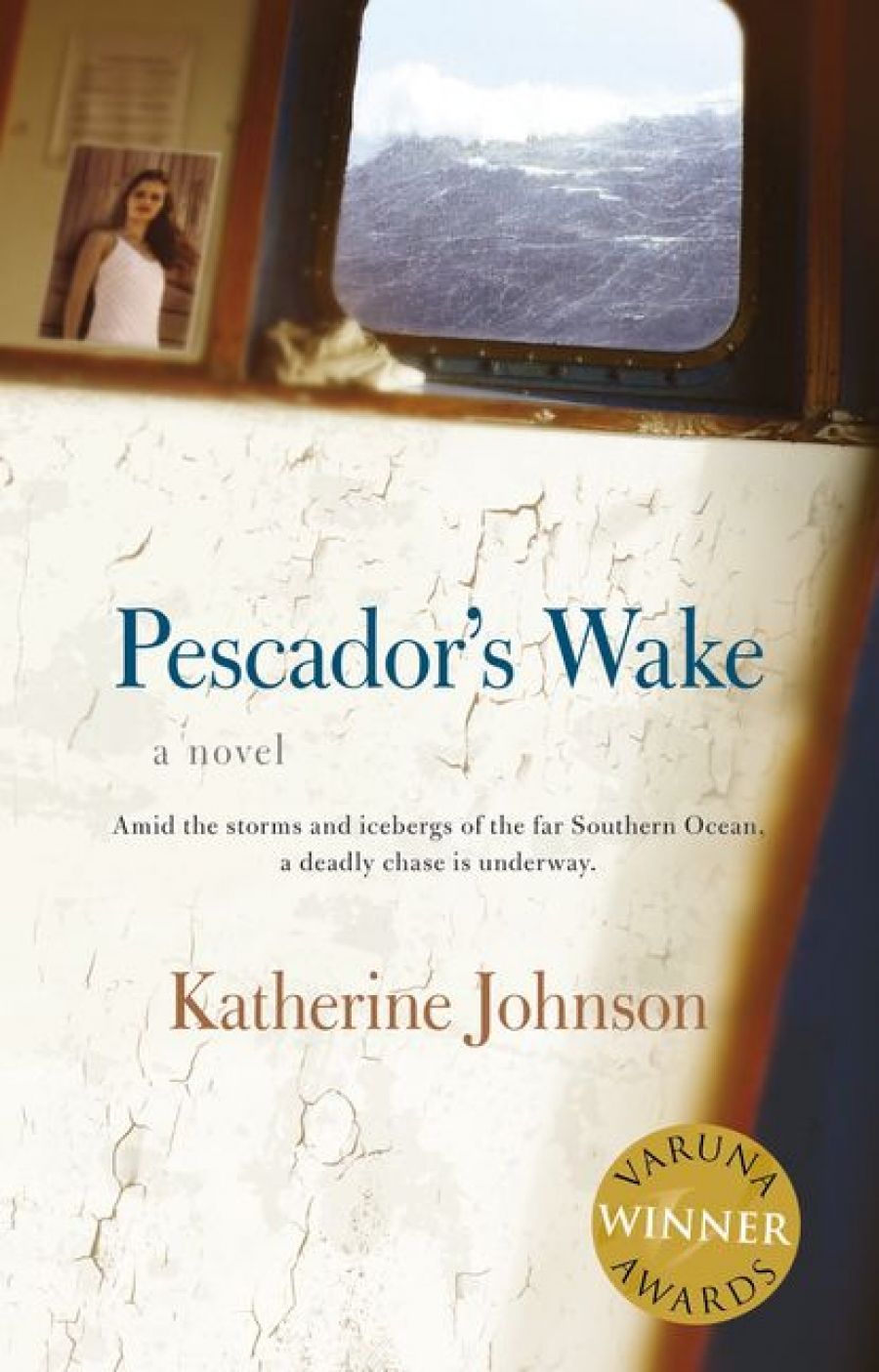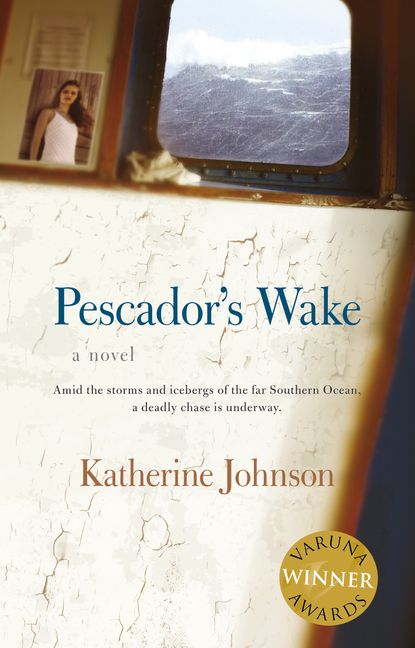
- Free Article: No
- Contents Category: Fiction
- Review Article: Yes
- Article Title: The chase
- Online Only: No
- Custom Highlight Text:
Katherine Johnson’s first novel, Pescador’s Wake, is a well-paced account of the pursuit of a Uruguayan vessel that has been fishing illegally for Patagonian toothfish in Australian territorial waters south of Heard Island. What follows is a stern chase. The Pescador is followed across thousands of nautical miles by another fishing boat, the Australis (from Hobart), which for six months of the year is chartered by the Australian Maritime Safety Authority to deter fish poachers. Johnson’s narrative cuts between action on the two vessels, hauling gales in waters near Antarctica, and more muted domestic dramas in Uruguay and Australia.
- Book 1 Title: Pescador's Wake
- Book 1 Biblio: Fourth Estate, $27.99 pb, 382 pp, 9780732288266
- Book 1 Cover Small (400 x 600):

- Book 1 Cover (800 x 1200):

One of the most intriguing aspects of the novel is the process by which it came into being. This is not principally a matter of Johnson’s use of the actual ‘chase of a Uruguayan-flagged longliner by an unarmed Australian patrol vessel’ in 2003. (The ‘hot pursuit’ of the Viasra I by the Southern Supporter was successfully completed after the longest sea chase in maritime history, with the assistance of a South African icebreaker and a British patrol vessel). Rather, it is the ways in which Pescador’s Wake was shaped by a programme instituted in 2000: the HarperCollins Varuna Awards for Manuscript Development.
The publisher’s note at the end of the book explains how, each year, five ‘new or emerging writers’ are given the experience of ‘working closely with a senior editor from HarperCollins’ at Varuna, the writers’ house in the Blue Mountains that was gifted by the son of its former owner, novelist Eleanor Dark. This indicates a collaboration that is deeper, earlier, and potentially more influential than conventional ones between an author and her publisher and editor. Thus, questions are raised about the nature of authorship and the tailoring of literary products for the market. Now, it seems, not only creative writing courses are the forcing ground for Australian fiction.
Certainly, the HarperCollins programme has some notable successes about which to skite. Through it came Ian Townsend’s fine historical novel, Affection (2005), which depicted an outbreak of bubonic plague in Townsville. Moreover, Townsend has followed through with The Devil’s Eye (2008), about the cyclone that destroyed the pearling fleet at Cape York a century ago. Besides fiction, the programme has produced two excellent memoirs in very different keys: Pip Newling’s Knockabout Girl (2007) and Kim Huynh’s Where the Sea Takes Us (2007). But what was the result for Johnson of the Varuna interlude?
What kind of book is the punningly titled Pescador’s Wake?
Well, it has something for everyone, being packed with incident, happy to digress, good-hearted and, implicitly, expecting the same indulgent generosity from readers. They may gain the impression that the novel is a loose stage along the path to the film for which it seems to be fitting itself. Back in Montevideo, pregnant Julia waits for news of her husband, Carlos, master of the Pescador, and of his first mate and best mate, Eduardo. Meanwhile in Hobart, Margie Bates, still grieving for her son Sam, killed by a heedless P-plater, wrangles with the Canberra bureaucracy (lazily stereotyped) as she tries to follow the progress of her husband, Dave, at the helm of the Australis.
In one of the numerous sentimental moments that Johnson creates, the women (whose husbands are good blokes and essentially not on opposite sides, being part of the community of fishermen) commence an unlikely conversation. We are also presented with issues of paternity involving each family, while at sea a mutiny is thrown in to compound the tribulations of storm and sea hunt. There are gestures to bigger pictures, in particular the troubled past of Uruguay, ‘stained’ by memories of Tupamaros guerrillas and military dictatorship. However, it is at the micro-level that Johnson most needed guidance.
Where to begin? There is the constant irritation of finding ‘si’ and ‘gracias’ in sentences where the bulk of the Spanish has been rendered into English. There is a tidal wave of clichés that finally reduces the reader to horrified laughter as towels are thrown in, whole new ball games begin and a sailor recognises that the sea is in his blood, while for another the ocean is, improbably, a baptism of fire. The finest example of this mixing of fluids is the observation of how ‘raw nerves turn bowels to water’. But Johnson’s similes top her clichés: news strikes like a tsunami, lives unravel like an old fishing net, ‘laughter hisses like shards of ice in a fire’. Finally, what readers were intended for this statement (presumably the ‘general’ rather than the ‘literary’ kind): sex is ‘a transfusion of intimacy that gave their marriage vital blood’?
Few of the characters engage us. The villains, in particular, are made of cardboard: the sinister Spaniard Migiliaro, who owns these ‘leaking pirate fleets’ but appears to be beyond reach of the law; the malignant Russian engineer Dmitri, who has stacked the hold of the Pescador with firearms to go with the other contraband of toothfish, and who says, ‘do not think for a moment that my colleague here does not know how to use that gun’. There is a partial exception. The best writing in Pescador’s Wake is to be found in the entries from the logbook of the first mate, Eduardo. He thinks of the place where they fish, many fathoms beneath them, so dark ‘that life must make its own light’. Finally, resonantly, he reckons that ‘we are not supposed to be here’. Johnson, of course, has taken us there in a novel that is full of energy, but short on discipline. Perhaps she needs a different programme next time.


Comments powered by CComment